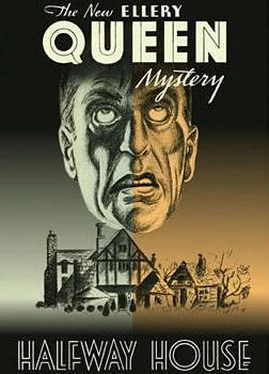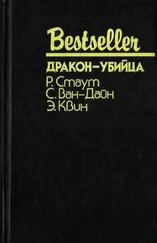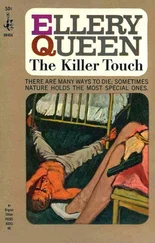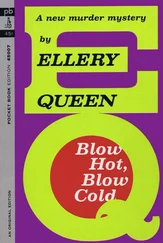“Well, there we were with one empty packet. Yet the criminal took it away with him. Why? People don’t do that, you know. When you use up a packet, you throw it away.”
“Ordinary people, perhaps,” retorted Pollinger, “but you’re forgetting that this man was a murderer on the scene of his crime, Queen. He might have taken his packet away out of sheer caution — not to leave a clue.”
“Aptly phrased,” murmured Ellery with a sly grin. “Not to leave a clue. But how would an ordinary packet of matches leave a clue, Pollinger? These things are used for advertising anything and everything under the sun. You may say that the product or place advertised on the cover has an address which the murderer might feel would leave a trail to his place of origin or recent movements. Indefensible; you can’t base a single conclusion on the address of a match-packet advertisement. In New York you may be handed a packet originating in Akron, Tampa, or Evansville. I’ve been given packets with my purchases of cigarets and tobacco emanating from as far away as San Francisco. No, no, it wasn’t the address or the advertisement on the packet that forced the murderer to take it away.” Ellery paused. “Yet take it away he did. Why? What other kind of clue was he afraid the leaving of the packet might give? Obviously a clue, direct or indirect, that would lead to himself — a clue to his identity .” The two men nodded soberly; the three on the sofa sat forward.
“Now, remember this. From the beginning the murderer was afraid that Andrea had seen something damning on the scene of the crime. It couldn’t have been his face or figure; he had struck her from behind and she had never had an opportunity to glimpse the person who assaulted her. Yet he must have considered what Andrea saw of terrible importance: he took time out on the scene of his crime, still smoking with the blood of the victim, to go through that slow and difficult process of writing the note; he wired her another warning the day after the crime; he sent her a more subtle warning only last Saturday when he felt the trail getting hot. These things were fraught with peril for him, even though he negotiated them without detection. Nevertheless, he persisted in warning Andrea to keep quiet. Why? Why? What had she seen, or what did he fear she had seen, that made him so apprehensive? It could only have been that match-packet which he had taken away and which she had observed on the table with the six match-stubs just before she was struck on the head.
“But we’re looking for a reason for his having taken the packet away. There’s only one feasible reason. The packet was closed. He knew that; it was lying on the table in full view. Whatever it was that worried him about that packet, it was something simple, direct, seen at once, understood in a flash, and connected with the outside of the packet. Was he afraid she had recognized it as belonging to him? Implausible; people don’t ordinarily ‘recognize’ match-packets, and even if they do anyone else might be using an identical one. So it could only have been that there was an insignia, a monogram perhaps, some simple inscription on the cover of that packet which Andrea could identify at once with a specific individual.”
“It’s so funny, all this,” said Andrea with a catch in her throat. “To think—”
“The irony of it,” said Ellery grimly, “was that Andrea didn’t remember anything special about the cover of that packet. She saw it, but it didn’t register in her mind, upset and scared as she was at the time. It was the other day, while I was planning our little drama for Saturday night, that I recalled it to her mind by a direct question after I’d deduced the answer; and then, for the first time, she remembered. But the criminal couldn’t take the chance that she hadn’t seen. After all, he had observed her staring directly at it. He never doubted for an instant that she had read what was on it and knew his identity as the murderer. And so I now had another element in the description of the murderer. He was a man. He smoked a pipe. He used match-packets with some sort of identifying inscription on their covers.”
“Remarkable,” muttered Judge Menander, when Ellery paused to light a cigaret. “But surely that isn’t all? I still don’t see—”
“All? Scarcely. It was merely the first link in the chain. The second was forged by that charred cork. I’ve demonstrated in the past that if the criminal used the cork as a writing instrument, then clearly there was no more practical writing instrument at hand that he thought of. I add this last, of course, because of the lipstick which he didn’t think of using, being a man. This meant that he himself carried no pen or pencil on his person at the time — remember, the necessity for writing the note arose unexpectedly — or, if he did have a pen or pencil, there was something about it that made him unwilling to use it.” Ellery paused again. “Pollinger, do you recall my little extemporaneous effusion shortly after the crime, when I pointed out that you could not say who had been killed, Gimball or Wilson?”
Pollinger made a wry face. “I do. I remember you said it would prove important in the solution.”
“How important even I didn’t grasp at the time. It’s proved incalculably vital in the solution. Without this knowledge — in which personality the man was killed — no final logical elimination could have been made. For this knowledge led to the most revealing characteristic of the murderer. The picture of the murderer would have been vague and meaningless lacking the answer to this question. I can’t stress too much the totality of the point.”
“You make it sound portentous,” observed the Judge.
“It has proved portentous to the murderer,” replied Ellery dryly. “Now. In what personality had our victim been killed: as Gimball or as Wilson? I was now in a position to answer the question.
“Follow me: Since the murderer had killed his victim and framed Lucy Wilson for the murder, then he must have known that Lucy Wilson would be believed by the police to possess a powerful motive for the crime. For no one frames an innocent person without knowing that that person has a conceivable and credible motive. The mere fact that Lucy was the wife of the victim didn’t make her in any sense a logical victim of the frame-up. Well, what were Lucy Wilson’s ‘motives’? What motives, in fact, were actually ascribed to her during her trial? It was pointed out by our clever friend here that: one, she could have learned just before the crime that Joseph Wilson was really Joseph Kent Gimball, having deceived her about his true identity and other life for ten years, and that this knowledge would turn her love to hatred; two, that by his death she stood to gain a million dollars. These, it was said, were Lucy Wilson’s motives — there were no others, for she and Wilson had led an ideal domestic existence. But for the murderer to have visualized these motives for Lucy Wilson meant that the murderer was aware of them . He knew, then, that Joseph Wilson was really Joseph Kent Gimball; he knew, then, that at the death of Joseph Wilson, Lucy Wilson would be paid the million dollars of Joseph Kent Gimball’s insurance. To know these two facts the murderer therefore must have learned somehow that his intended victim was both Gimball and Wilson, that the man had been leading a double life for many years.
“But if the murderer knew his intended victim was leading a double life, he also knew that he was killing not Joseph Kent Gimball alone, not Joseph Wilson alone, but both . The man was murdered, then, in neither personality exclusively, but in the two collectively; and how important this is I leave you to judge.”
“I’m afraid I’ll have to leave it to you,” grinned Pollinger.
Читать дальше












